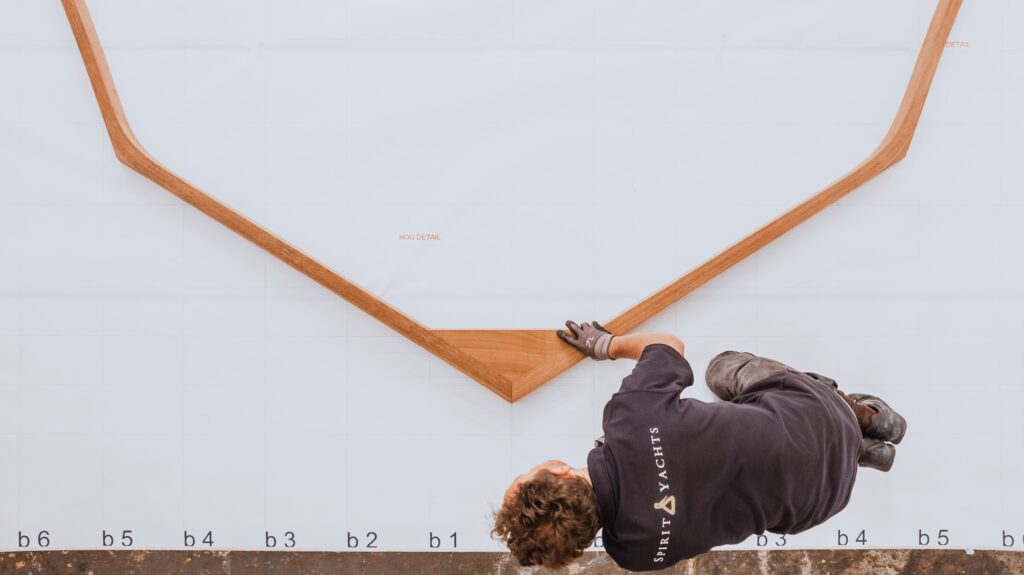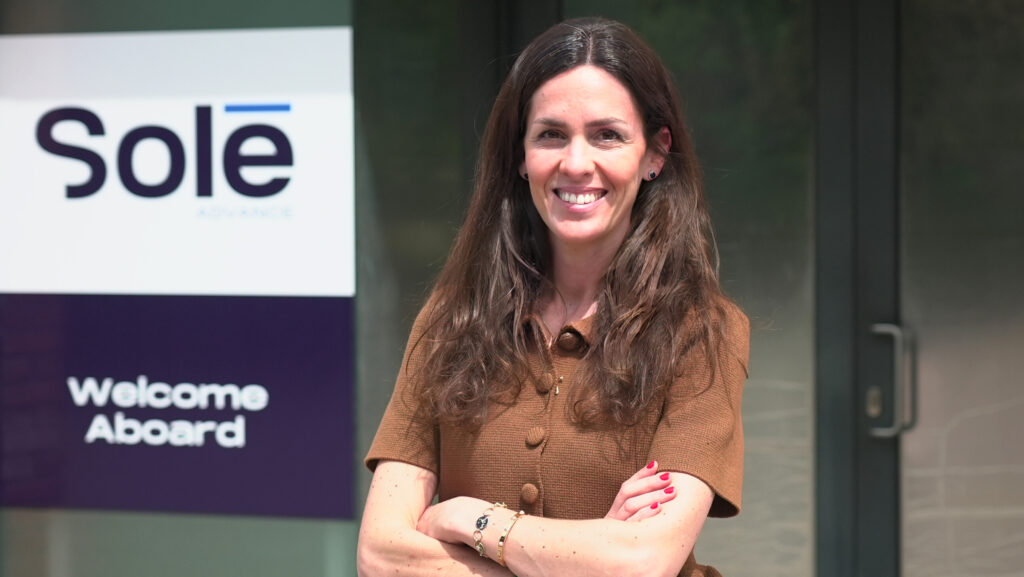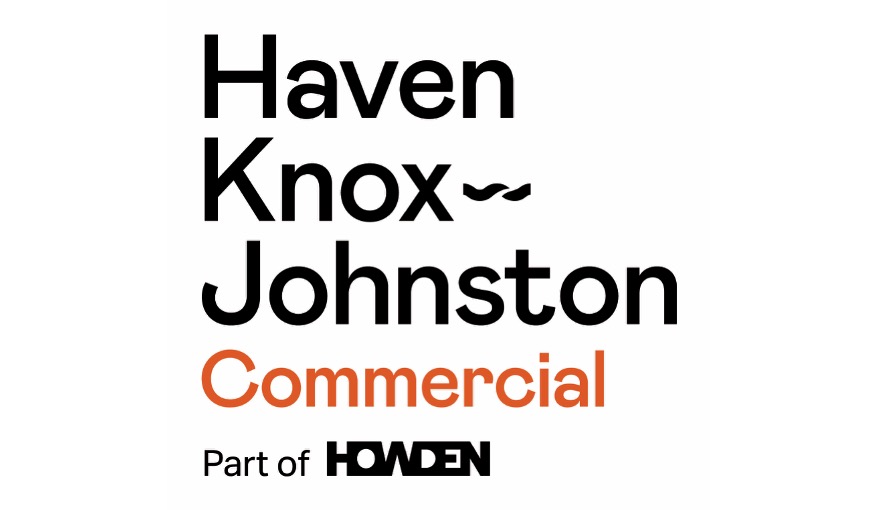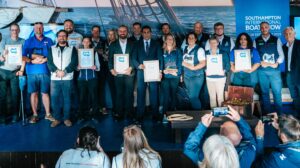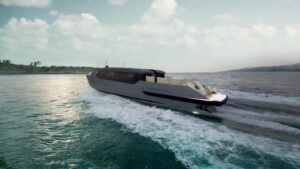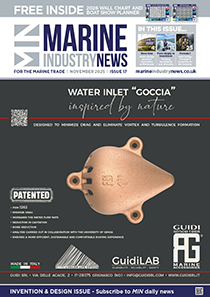Marine spotlight: Karen Underwood – Spirit Yachts’ MD – on building with wood, sustainability and never assuming anything
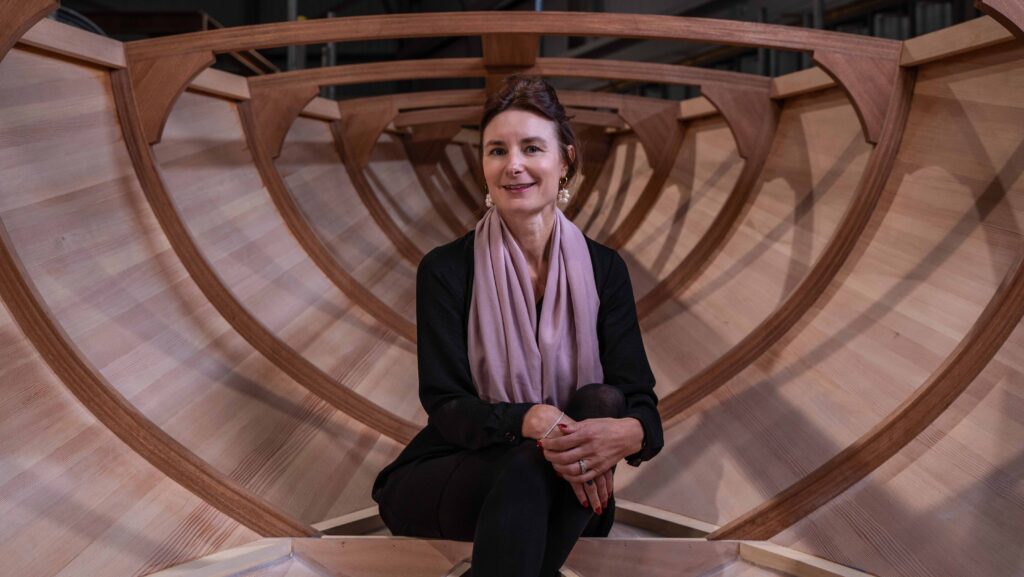 Karen Underwood, Spirit Yachts. Image courtesy of Luke Dorey
Karen Underwood, Spirit Yachts. Image courtesy of Luke Dorey
Karen Underwood has been managing director of Spirit Yachts since 2015. The company — based in Ipswich, in the UK county of Suffolk — designs and builds wooden modern classic sail and motor yachts.
Here, Underwood shares how her time with Oyster shaped her career, explains why a wooden competitor in the Admiral’s Cup is so important, and wonders how the industry is going to cope with meeting the requirements of future environmental legislation.
What were the pivotal moments in your career?
My education in manufacturing and operations began with my first full-time job at local construction company RG Carter. I was young and inexperienced, so I went in quietly but determined to learn and succeed. The team at RG Carter, many of whom I am still in touch with today, taught me one of my most valuable business lessons. Never assume. It’s safe to say that if you assume once and you get it wrong, you will never do it again. I can’t say it enough to our team: stop, think and ask questions so you have all the facts before you act.
Whilst employed at RG Carter, I went on holiday to Cyprus. When I was away, my mum saw a job advert in the newspaper (showing my age there) for a job at Oyster Yachts. On my return, I went to the interview with Alan Brook, Joint MD at the time. During the interview he asked me ‘do you smoke?’, I said ‘no but I probably would if you set me alight’. He offered me a job there and then.
At Oyster, using my operations experience from the construction industry, I supported the project managers working on yachts being built in Wroxham and Southampton. At the same time, I helped set up infrastructure for Oyster yacht production in Auckland, looking after all the imports and exports to and from New Zealand.
Latterly, I helped support Oyster superyacht production at the facility in Turkey. Julian Weatherill, who was then the Oyster project manager in Turkey, is now a director at Spirit Yachts.
The marine industry is small so I learnt never to burn bridges and make as many contacts as you can. You never know, you may end up working closely with the next person you meet.
Oyster founder Richard Matthews calls me his ‘make it happen girl’ to this day, and we are still in contact, 24 years after I was first employed at Oyster. It’s well known in the industry that Richard is a task master, but I gained his respect and trust by working hard and being consistently good at my job. He rewarded me with loyalty, and his support continues today.
In 2015, Oyster changed its business structure, and I disbanded the Oyster premises in Ipswich, giving the keys to Richard, and helped over 80 staff create a new life outside of Oyster Ipswich. This included helping families and individuals move to Oyster yards in Southampton or Wroxham, or go on to pastures new.
As an employer now, I take many lessons from that time with Oyster. The main one being to understand people’s lives outside work. If people feel safe, secure and respected, they are loyal and work to their full potential — I have tried to continue to practise what I preach in my current role as managing director at Spirit Yachts. In return, I also expect certain values from the team. At Spirit, we ask for honesty, integrity, commitment, respect and to strive to deliver the world-class standards we are renowned for.
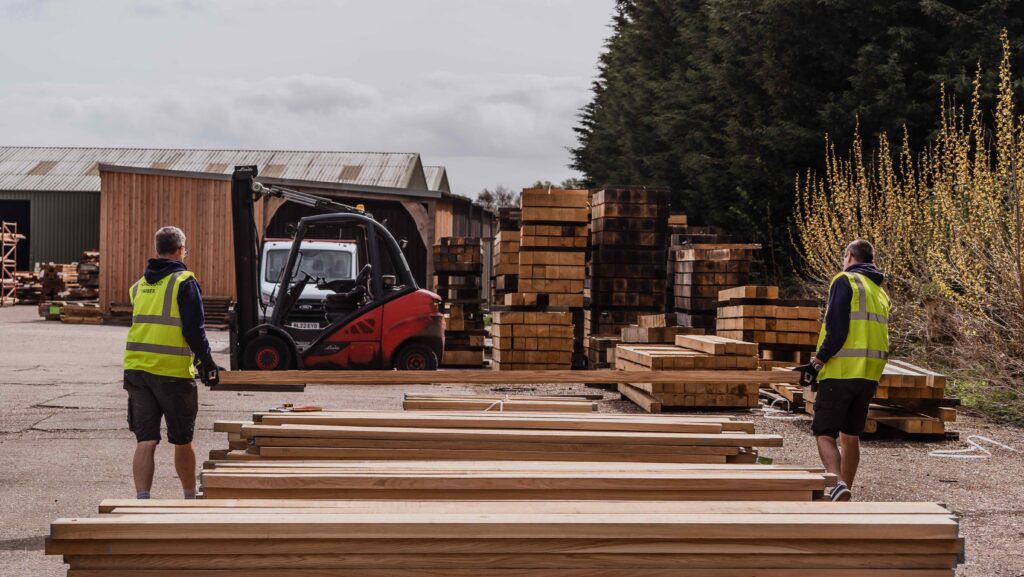
What’s driving Spirit Yachts at the moment?
Spirit Yachts changed ownership in 2023, which was a huge transition after 30 years of being owned and managed by one of our founders, Sean McMillan. Sean gave us a strong foundation to build on, and our job is to continue the Spirit story. It’s a careful balance of retaining what makes Spirit special — our design DNA, our commitment to building in wood, world-class craftsmanship to name a few — whilst evolving with developments in technology and consumer trends.
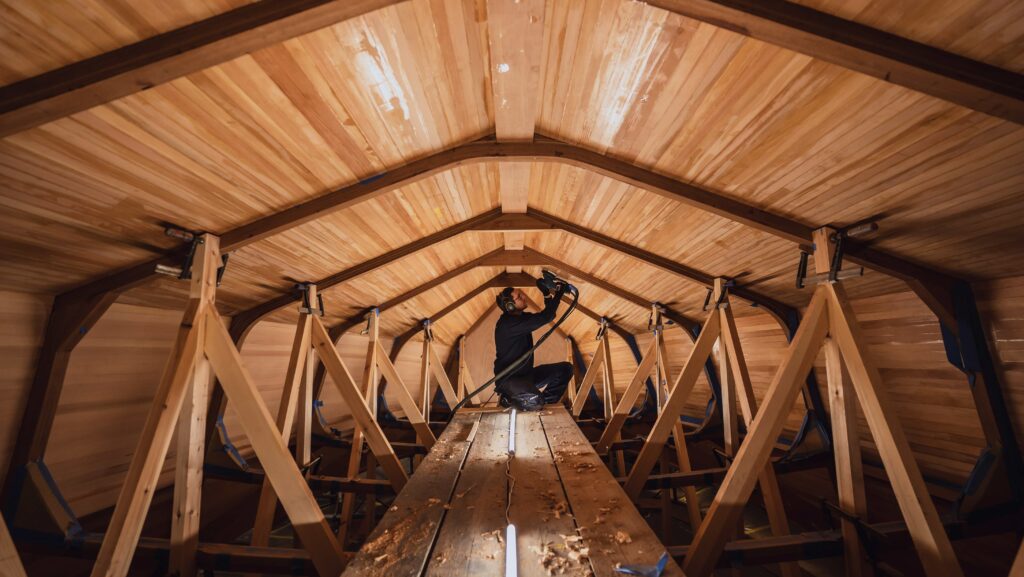
An example of this evolution is our new P50 design (above), of which there are two iterations — a Coupé and a Sport. Before launching the new models, we carried out extensive market research and design development to ensure we deliver our renowned style and quality, but at the same time prioritise a luxury guest experience onboard. The power boat market offers a huge amount of choice for clients, but no one is offering anything close to a luxury, wooden, modern classic 50ft yacht, and that is an exciting prospect.
Initial interest has been strong, and we already have one of each P50 model in build, with the first hull, a P50 Sport, due to launch in the spring next year.
How does Spirit fit into the current environmental climate?
From an environmental perspective, the UK Government has committed to a legally binding target of Net Zero by 2050, and as businesses, we need to be taking steps to comply. When I look around our sector, I am concerned about the readiness for this target. We are only 25 years away from the target date, and there is a lot of work to be done.
Sometimes I look around a boat show and wonder how the industry is going to cope with meeting the requirements of future environmental legislation.
At Spirit, we consider the impact of everything we do. From daily operations to waste, materials and build processes, to how the yacht impacts the environment once launched. However, we are not perfect, and our next step is to do a life cycle assessment on the business to do a deep dive into reducing our emissions. It would be great to see more marine businesses lead the charge rather than play catch-up as legislation looms.
Another observation is the growth of AI. As an industry, the marine sector is often considered a slow adopter, especially in comparison to automotive. I feel proud to be leading a company in which our team’s craftsmanship and creativity do not rely on technology, but we are up-skilling where relevant to use AI tools to improve our efficiency. It would be interesting to hear of any shared learnings from across the industry where marine companies have used AI effectively as the technology develops.
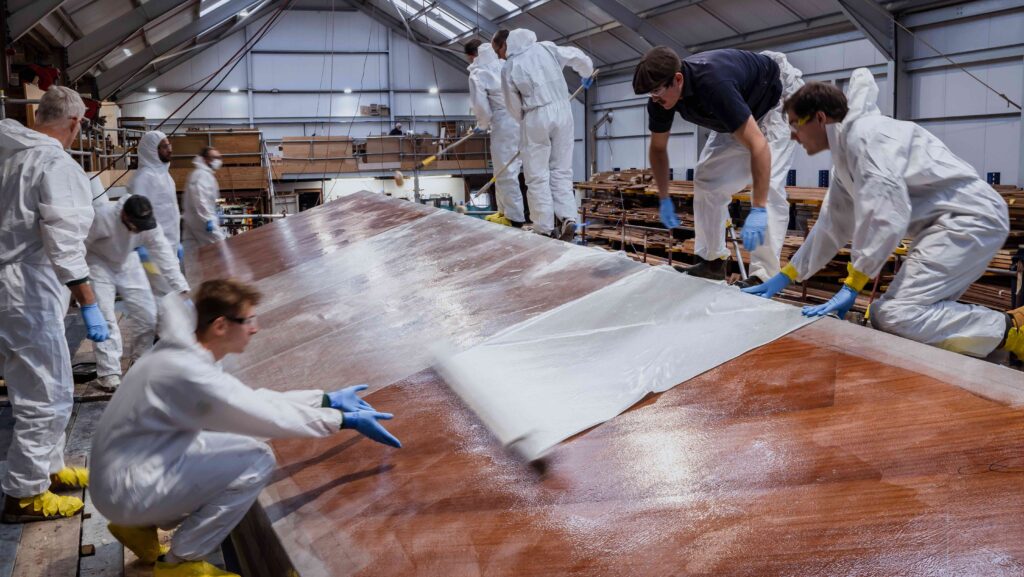
What’s currently exciting in the marine market?
This is very specific to Spirit, but we were hugely excited to see a wooden yacht competing in this year’s Admiral’s Cup. Designed by Thomas Tison, the Tison 48 Elida placed second on corrected time in AC Class 1 in the Fastnet Race.
To see a modern, wooden hull compete successfully against top level race yachts such as TP52s and the new Wally Rocket 51 shows there is a future for building competitive yachts in responsibly-sourced, renewable timber instead of materials with high carbon footprints and no end of life solution.
It’s great to see more sustainability initiatives being brought into professional racing, from SailGP to the IMOCA Class, which will hopefully filter down to grassroots and leisure sailing.
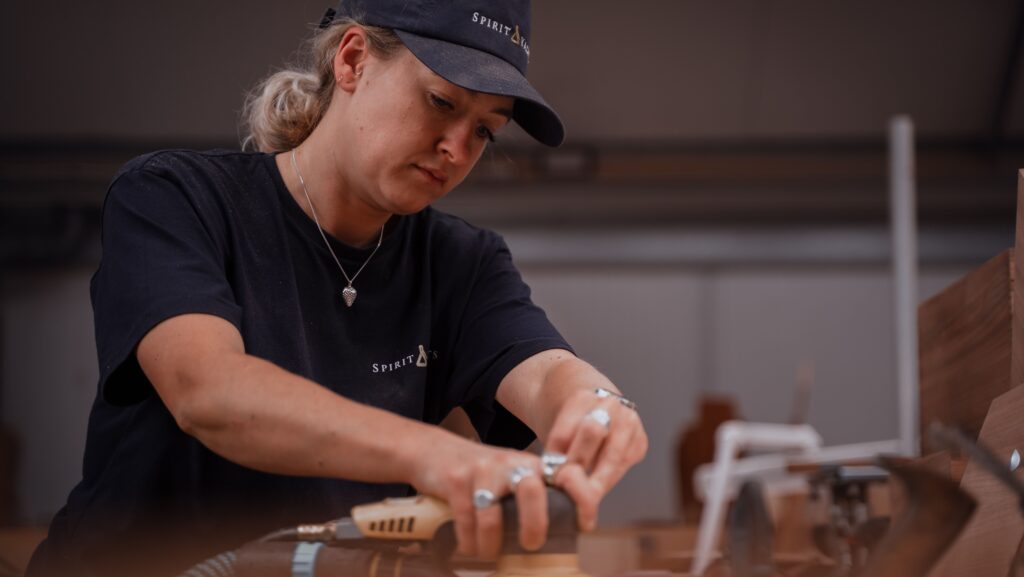
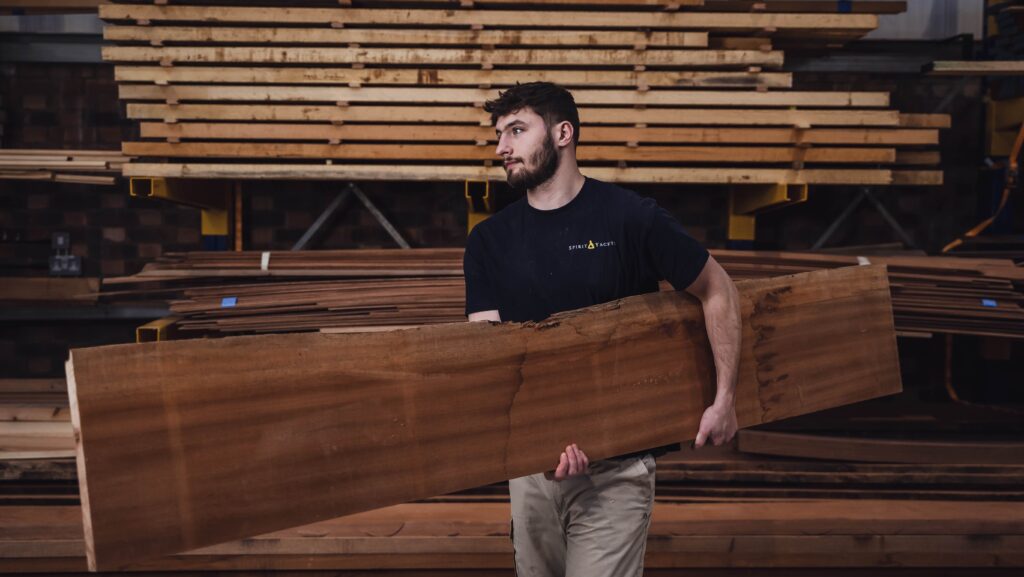
What’s happening with your workforce?
As with most manufacturing businesses, we are always looking to recruit new and skilled men and women to join our team. The marine industry has been suffering from a skills shortage for a while now, and as businesses, we need to take an active role in inspiring people to join or remain in skilled-based roles. It’s a balance of attracting the next generation and retaining experience to create a sustainable workforce.
In the spring, we hosted an open day to meet business growth and create a pipeline of talent for the future. The event was such a success that we will host an autumn recruitment day on Friday, 10 October. People need the opportunity to understand and trust a business before they accept a new role or embark on a different chapter in their career. It’s often not just about the 9-5; it’s about the culture and feeling proud of what you are achieving.
The next generation needs to have their eyes opened to the wide range of marine careers available to them. At the same time, experienced candidates need to feel reassured they are joining an industry or a business where they can be creative and feel valued.
At Spirit, we have craftsmen and women, designers, engineers, electricians and a commissioning team all under one roof — there is something for everyone.
What changes would you make to the market, if you had a magic wand?
I know my team would like the process for shipping goods into Europe to be simplified.
It has become much more complex since Brexit and adds time and cost to our day-to-day operations.
I have read Marine Industry News articles in the past in which Suzanne Blaustone, CEO of Barton Marine, has spoken eloquently about the difficulties for businesses trading and exhibiting in Europe and we face the same issues, it’s extremely challenging.
Can you describe a hard decision you’ve had to make?
Sometimes the marine industry can feel a bit ‘feast or famine’, particularly with the unpredictability of world events, so being able to remain agile as a business is key. This means regularly making hard decisions, and sometimes you don’t know if it’s the right call or not — only hindsight will reveal the full impact. Whether it’s weighing up the return on investment of a marketing initiative, making a bold investment into growth or carving out a new design direction, it’s rarely just my decision — we work as a team, discuss the pros and cons and then make our move.
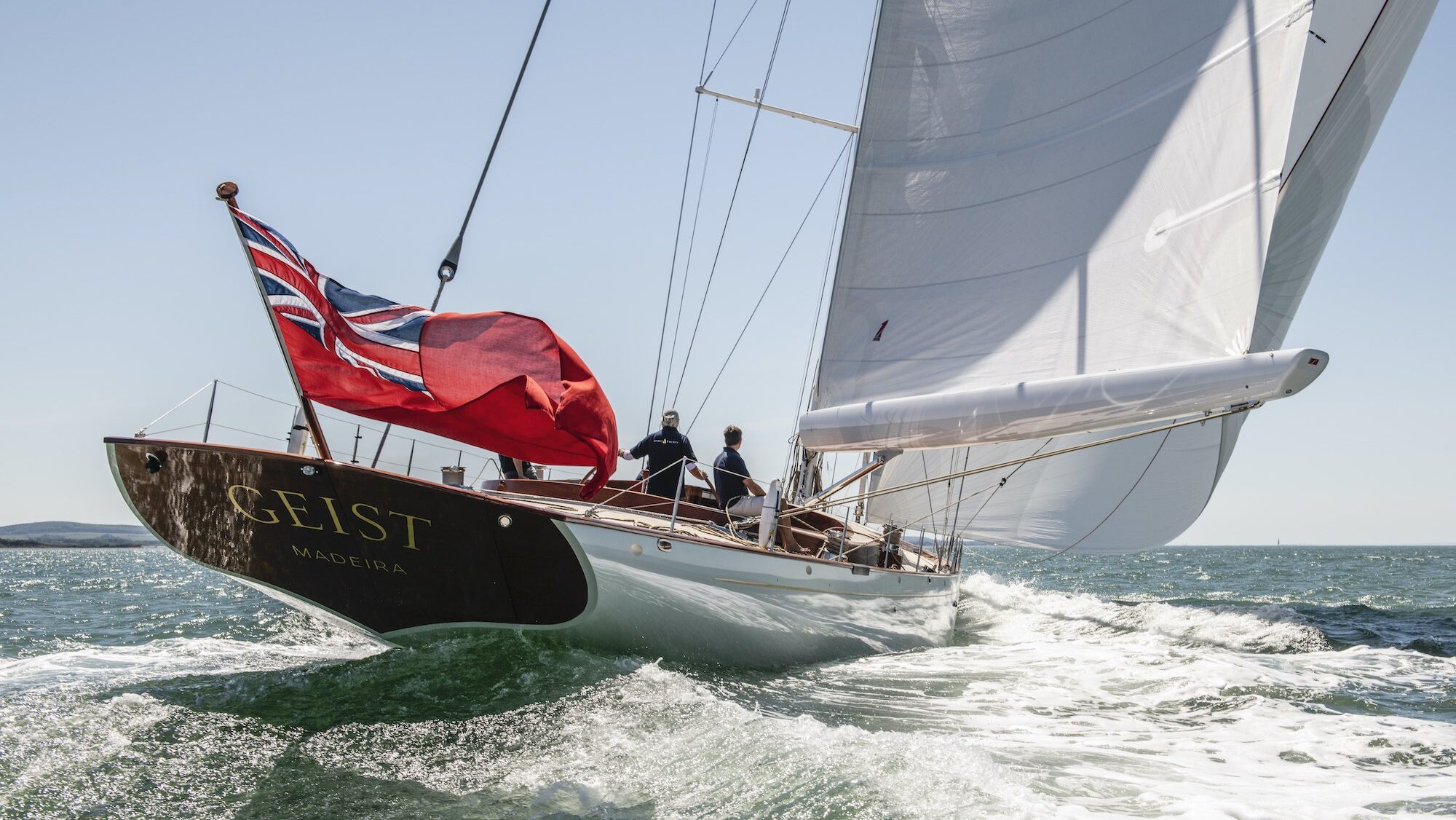
Can you describe a mistake you’ve made and how you recovered from it?
It’s true to say that everyone can learning from mistakes, not only within the workplace but in their personal life, every day is a school day as they say! I do not confess to having all the answers, but I always find value with ‘checking in’, whether that’s with an employee, supplier or a friend, before making a decision.
When I first joined Oyster, it seemed like it had its own language: athwartships, midships, deadship — there was a lot to learn. One of my first mistakes occurred during a shipping exercise, when I failed to appreciate the difference between ‘displacement’ and ‘tonnage’. This comes back to not assuming and always checking everything thoroughly. In my inexperience back then, I hadn’t appreciated the difference. In my defence, there are three different types of tonnage (gross, net and deadweight) — I never made that mistake again.
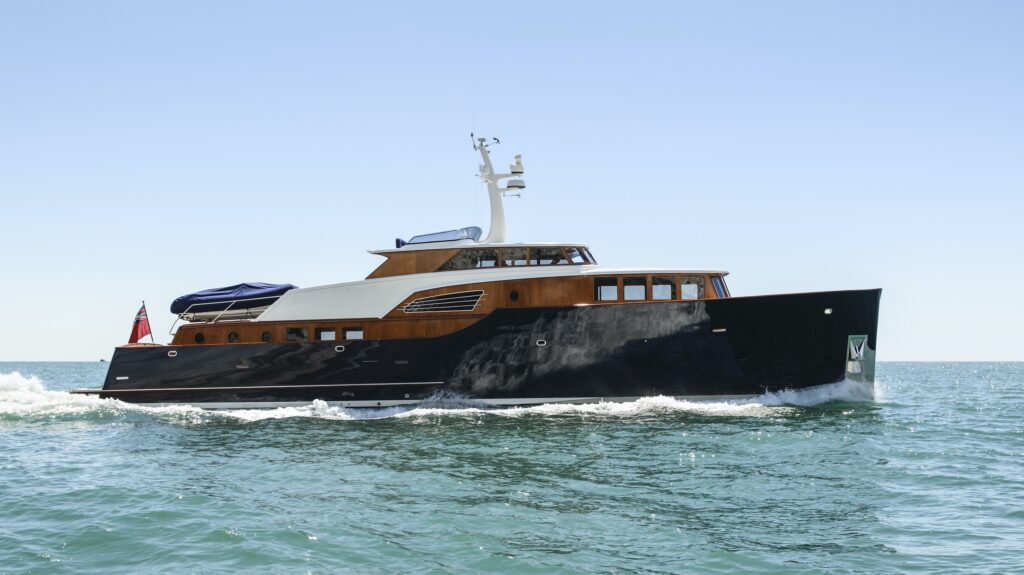
What’s been your proudest moment?
To walk into the yard every day, to personally know the staff and their families, and to know our owners and key suppliers makes me very proud to be at the helm of Spirit. To know that we can help shape someone’s career and help students find valuable employment after education is fantastic; this makes me proud and is a huge part of Spirit’s legacy. For me, it always comes back to the team, which is at the heart and soul of any good business.
In terms of a single moment, earlier this year we sold the first Spirit C78. She is a new sloop sailing yacht design, which stays true to Spirit’s modern classic style, but in terms of guest experience and sailing performance, she is an evolution of learnings from over 30 years. The first C78 goes into build in October and we have already received significant further interest, despite not publicly revealing details of the project — we believe she will be a landmark design for Spirit.
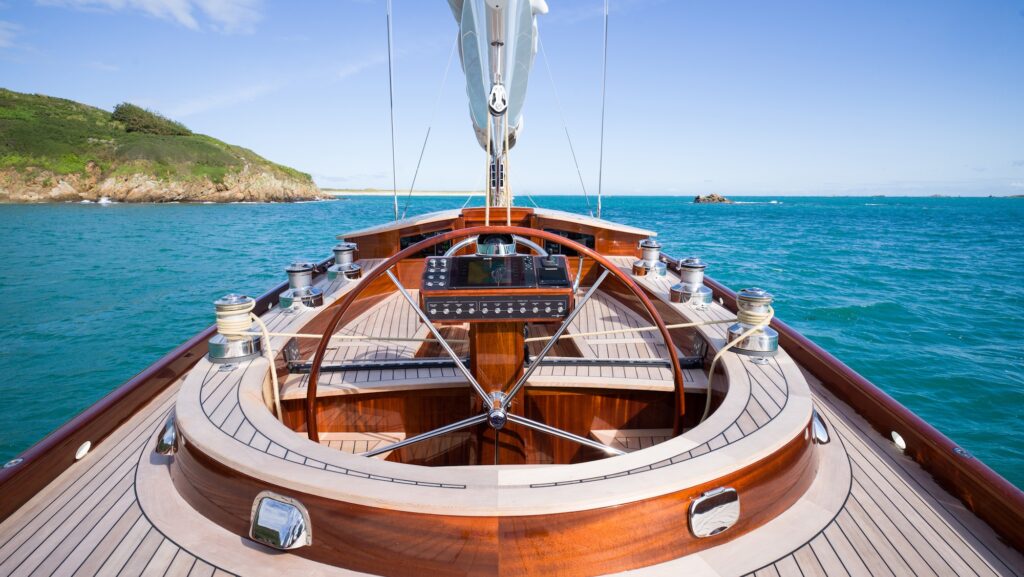
Where will Spirit Yachts be in five years?
The future for Spirit is sustainability, and this takes two forms. Firstly, we have created a strong and stable foundation for Spirit Yachts, on which we will continue to build to provide a sustainable source of employment for the world’s best designers, engineers, electricians and wooden boatbuilders. Our people are our best resource, and our goal is to always attract the best talent and nurture the next generation to deliver the highest quality yachts.
Second, is our commitment to using responsibly-sourced timber and to continue to be ambassadors for building in wood. We are investing in equipment and processes to make efficiencies and lower our carbon emissions, to ensure we have a sustainable business (in all senses of the word) for the future.
